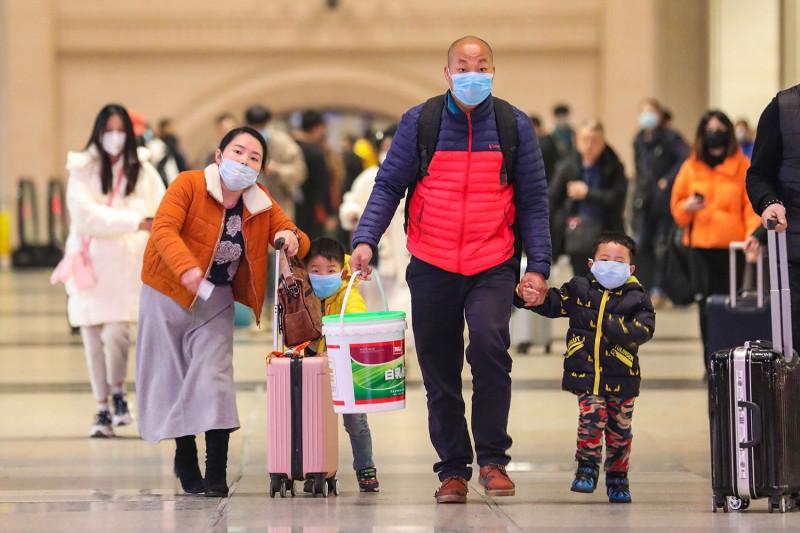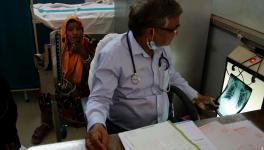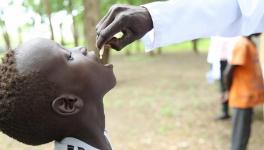China Suspends All Public Transport in Wuhan as Coronavirus Cases Mount

Beijing: China has suspended all public transport, including flights in and out of Wuhan, the epicentre of the coronavirus as the confirmed cases climbed to 571 mostly from the city with 17 deaths so far.
The World Health Organisation (WHO) which held an emergency meeting on Wednesday in Vienna to deal with the global impact of the virus has extended the talks till Thursday to decide on whether the outbreak in China constitutes a Public Health Emergency of International Concern (PHEIC), like Ebola and Swine flu.
Such a declaration, if made, will be seen as an urgent call for a coordinated international response in view of fears that millions of Chinese are travelling at home and abroad for the Chinese New Year and Spring Festival holidays starting from January 24.
It said its staff in China are closely monitoring the situation.
The festival triggers biggest mass migration, clogging road, rail and air networks every year.
China's Health Commission which is periodically updating the steps being taken to deal with the virus said on Thursday morning that so far a total of 571 confirmed new coronavirus cases and 17 deaths in Chinese mainland.
Majority of these cases are from Wuhan and surrounding areas.
700 Indian Students Around Wuhan
While India has already issued a travel alert, some of the 700 students studying medicine and other courses in around the city still stayed put while majority of them left due to holidays.
Seven new cases of Wuhan Coronavirus had been confirmed in Shanghai, the Commission said.
Wuhan also suspend bus and subway services in the city and close outbound travel at train stations and airports from 10 a.m of January 23 amid the escalating epidemic of coronavirus, according to a statement released by city authorities early on Thursday.
The residents have also been directed to wear masks to ensure that the virus is not spread.
"We must be steadfast and strong to keep the outbreak within Wuhan. We'll urge Hubei province and the city of Wuhan to take the strictest measures for prevention and control," Li Bin, vice-minister of the National Health Commission, said on Wednesday.
Such measures include intensifying supervision of open-air markets, minimising public activities, taking the strictest measures regarding people with fever and preventing the outbreak from further spreading, he said at a news conference organized by the State Council Information Office.
The Wuhan government required all people in public places such as hotels, restaurants, cinemas, parks, shopping centres and public transports to wear masks to prevent the spread of the virus, according to an announcement on Wednesday night. The rule took effect immediately.
The disease further spread across the country as health authorities in Shanxi, Fujian, Guizhou and Hebei provinces, as well as the Ningxia Hui autonomous region, confirmed their first infection cases. Beijing has already reported some cases.
Hong Kong and Macau too have reported such cases.
"Human-to-human transmission of the disease has appeared, and the virus is likely to mutate. There are risks of the further spread of the disease," Li said, adding the ongoing traffic peak with the upcoming Spring Festival has increased the risk of its spreading, which requires a high state of alert.
Wuhan authorities announced that all local tourism agencies, including their branches outside the city, will suspend business and will not organize tours until February 8.
All tours scheduled to start after January 30 will be cancelled.
The city government has also called for residents not to leave Wuhan and outsiders not to enter the city if there's no particular need, to reduce the risk of the virus spreading further.
’Virus May Have Transmitted to Humans From Snakes'
The novel Chinese coronavirus likely resided in snakes before being transmitted to humans, according to a new study that may help design better defensive strategies against future outbreaks of the deadly pathogen.
According to the researchers, including Wei Ji from Peking University Health Science Centre in China, patients who became infected with the coronavirus -- named 2019-nCoV by WHO -- were exposed to wildlife animals at a wholesale market, where seafood, poultry, snake, bats, and farm animals were sold.
The study, published in the Journal of Medical Virology, offers insights on the origins of the most recent outbreak of pneumonia caused by the virus, which started in the middle of December 2019 in the city of Wuhan in China, and has now spread to Hong Kong, Singapore, Thailand, and Japan.
Conducting a detailed genetic analysis of the 2019-nCoV, and comparing it with those of different coronaviruses from various geographic locations and host species, the study found that the new virus formed from a combination of CoV found in bats, and another of unknown origin.
"It is critical to determine the animal reservoir of the 2019-nCoV in order to understand the molecular mechanism of its cross-species spread," the scientists reported in the study.
The new virus, the scientists said, developed a mix, or "recombination", of a viral protein which recognises and binds to host cells.
According to the study, this recognition is key to allowing viruses to enter host cells, and cause infection and disease.
On further analysis, the researchers found evidence that the 2019-nCoV may have resided in snakes before being transmitted to humans.
"Additionally, our findings suggest that snake is the most probable wildlife animal reservoir for the 2019-nCoV," the researchers said.
They said recombination within the viral receptor-binding protein may have allowed for cross-species transmission from snake to humans.
"Results derived from our evolutionary analysis suggest for the first time that snake is the most probable wildlife animal reservoir for the 2019-nCoV," the scientists wrote in the study.
“New information obtained from our evolutionary analysis is highly significant for effective control of the outbreak caused by the 2019-nCoV-induced pneumonia," they said.
The new virus is similar to the one which caused the 2003 outbreak of Severe Acute Respiratory Syndrome (SARS) in 2003, infecting 8422 people, and killing more than 900.
However, the current study noted that unlike the SARS-CoV, the 2019-nCoV causes a mild form of viral pneumonia, and has limited capability for person-person spread.
Get the latest reports & analysis with people's perspective on Protests, movements & deep analytical videos, discussions of the current affairs in your Telegram app. Subscribe to NewsClick's Telegram channel & get Real-Time updates on stories, as they get published on our website.
























